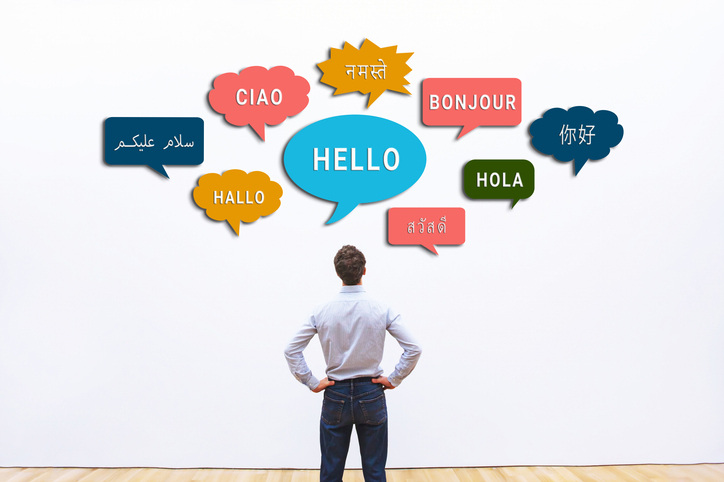How to Choose the Right Transcreation Service Provider: 7 Key Considerations

Transcreation is the art of translating creative content so that the true intention of the creative remains intact and culturally relevant to a new audience.
It’s not just providing an accurate translation of words but keeping the real meaning of marketing and advertising material alive for a new audience.
Case in point – the American Dairy Association had a hugely successful campaign with their “Got Milk?” slogan.
However, when they decided to translate it (instead of transcreate it) into Spanish, their new audience wondered why the slogan “Are You Lactating?” was relevant to milk sales. Yes, even big corporate can take their eye off the ball.
Transcreation is a separate skill from translation. We know, because as a Language Services Provider (LSP) we’ve guided clients through this process so that they can launch products in new languages with the same intent they were launched in English, and vice versa.
But not all LSPs are right for transcreation projects. And if you’re looking for a partner to bring your marketing and advertising content to life, these are the questions you should be asking.
7 Considerations for Choosing a Transcreation Service Provider
1. What Languages do you Work in?
If your target language isn’t on their list, then things aren’t going to work. While this may sound obvious, it’s worth drilling down into your intended new market and making sure the LSP has experience in that specific region, or with that specific culture.
An estimated 350 million speak French in Africa, so working with linguists that know your specific niche will give you more traction than a blanket approach.
2. What’s the Creative Background of your Linguistic Roster?
Who’s going to be on the project transcreating your material? What are their credentials?
It’s common for LSPs to have a deep roster of approved and certified linguists to support their clients as it wouldn’t be cost-effective for them all to be full-time employees.
Make sure the people brought onto your project have the right background in the creative industries.
3. Do you have Experience in our Industry?
They should also have experience working on accounts from your industry. Every industry has its own jargon, terminology, acronyms and way of communicating.
The top culprits for making life difficult to outsiders are the IT, Telecoms, Finance, and Legal fields.
Proving this point is a study done by Global market research company Ipsos, that found seven out of ten adults in the UK are puzzled by financial lingo.
If your transcreation partner doesn’t understand the industry, you’re starting out on a slippery slope.
4. What Quality Assurance Accreditation do you hold?
Companies in the language service industry live and die by their Quality Assurance (QA) processes and certifications.
After all, you’re hiring a LSP to help you create something in a language you don’t operate in. QA accreditation means your transcreation partner has been independently vetted and subjects itself to ongoing external audits.
What you want to see is ISO certification. ISO 17100, the standard for the translation industry, is a must.
Other ISO qualifications, such as ISO 9001 for Quality Management Systems (QMS), just cement the fact that you’re in good hands.
5. How Would our Project be Managed?
How does your transcreation partner run a project? What is their line of communication through to you so that you feel “in the loop” at all times? Do you have your own dedicated account handler? How long is your project going to take? What do they need from you up front, other than a concise brief (that they should be able to walk you through), so that they can get up and running? What will the approval loop look like with you?
Getting a gauge for how much work will be needed from your side will give you an idea of the time and resource draw on your business through the project. Being a creative project, will they need to interact with any brand, advertising or marketing external partners you already have in place? How will this work?
By getting to the bottom of all these questions you can see if their way of working matches yours. This will give you an insight as to whether the fit is going to be harmonious, or if there are logistical barriers to working together.
6. Can You Handle all our Current and Future Language needs?
The last thing you want to be doing, as you expand into other territories, is to go through the procurement process again and bring another LSP on board to help with non-transcreation needs – more straight forward translation, ineterpretation and localization projects.
It’s a good plan to have a single company handle all your linguistic requirements.
7. Start the Journey Early
Plan transcreation into your localization strategy as early as possible, not as a bolt-on at the end.
Ensure your chosen partner has a good roster of transcreators with creative and industry experience. They should have a solid QA and project management system in place.
Additionally, they should be able to cover all your upcoming linguistic needs. With these elements in place, you’ll be well on your way to a strong future in any language and any culture.
Get A Quote for Your Transcreation Project
If you need help with transcreation, we're here to assist. Let's discuss how we can ensure your message resonates across cultures.
Our consultations are free, and there's no obligation.
With LinguaLinx, your message will always be clear and impactful. As an ISO 17100 and ISO 9001 certified provider with over twenty years of experience, we've earned the trust of organizations worldwide.
Let us put our expertise to work for you.






